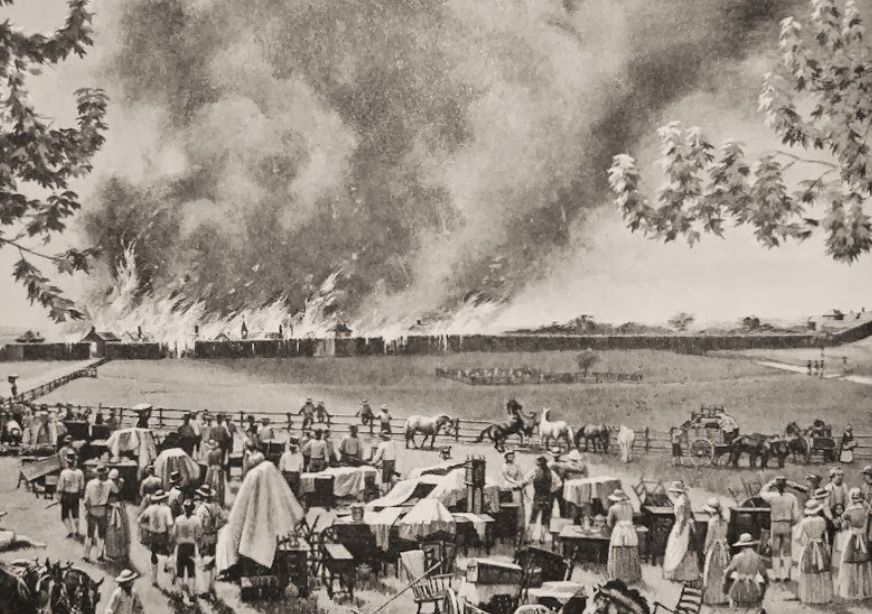The Great Fire of 1805 stands as a defining moment in the history of Detroit, forever altering the landscape and trajectory of the burgeoning city. On June 11th, 1805, a devastating inferno swept through the small settlement, leaving a trail of destruction in its wake. What began as a seemingly innocuous fire in a baker’s shop quickly escalated into an uncontrollable conflagration, fueled by strong winds and the predominantly wooden structures that composed the city.
The fire raged for nearly a day, consuming over 200 buildings and leaving thousands homeless. Despite the valiant efforts of the residents, who formed bucket brigades to combat the flames, the fire’s intensity proved insurmountable. By the time it was finally extinguished, much of Detroit lay in ruins, with only a handful of structures spared from the devastation.
In the aftermath of the fire, Detroit faced the daunting task of rebuilding from the ashes. However, this tragedy also presented an opportunity for the city to reimagine itself and emerge stronger than before. Under the leadership of Governor William Hull, Father Gabriel Richard and Judge Augustus Woodward, Detroit was meticulously redesigned with wider streets and a more organized layout, a stark departure from its previous haphazard configuration.
The reconstruction efforts not only revitalized the physical infrastructure of Detroit but also fostered a sense of community resilience and determination. The spirit of unity that emerged in the face of adversity laid the foundation for Detroit’s future growth and development. Over time, the city rose from the ashes of the Great Fire, evolving into a vibrant hub of commerce, culture, and innovation.
Today, the Great Fire of 1805 remains a pivotal event in Detroit’s history, serving as a testament to the city’s enduring spirit and resilience in the face of adversity. It stands as a reminder of the importance of preparation, cooperation, and adaptability in overcoming challenges and shaping the destiny of a community.
Interesting Article on the Founding of U of M


